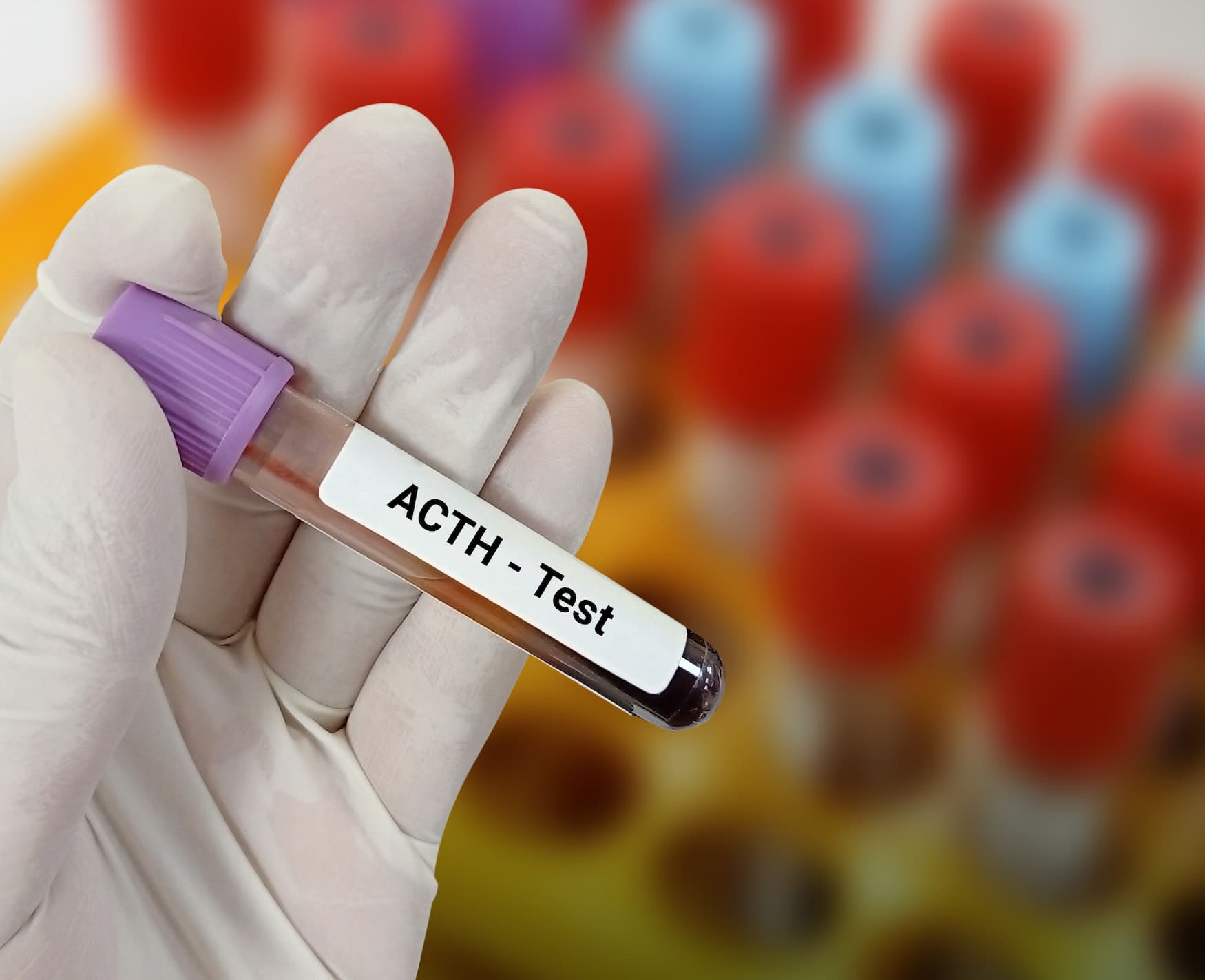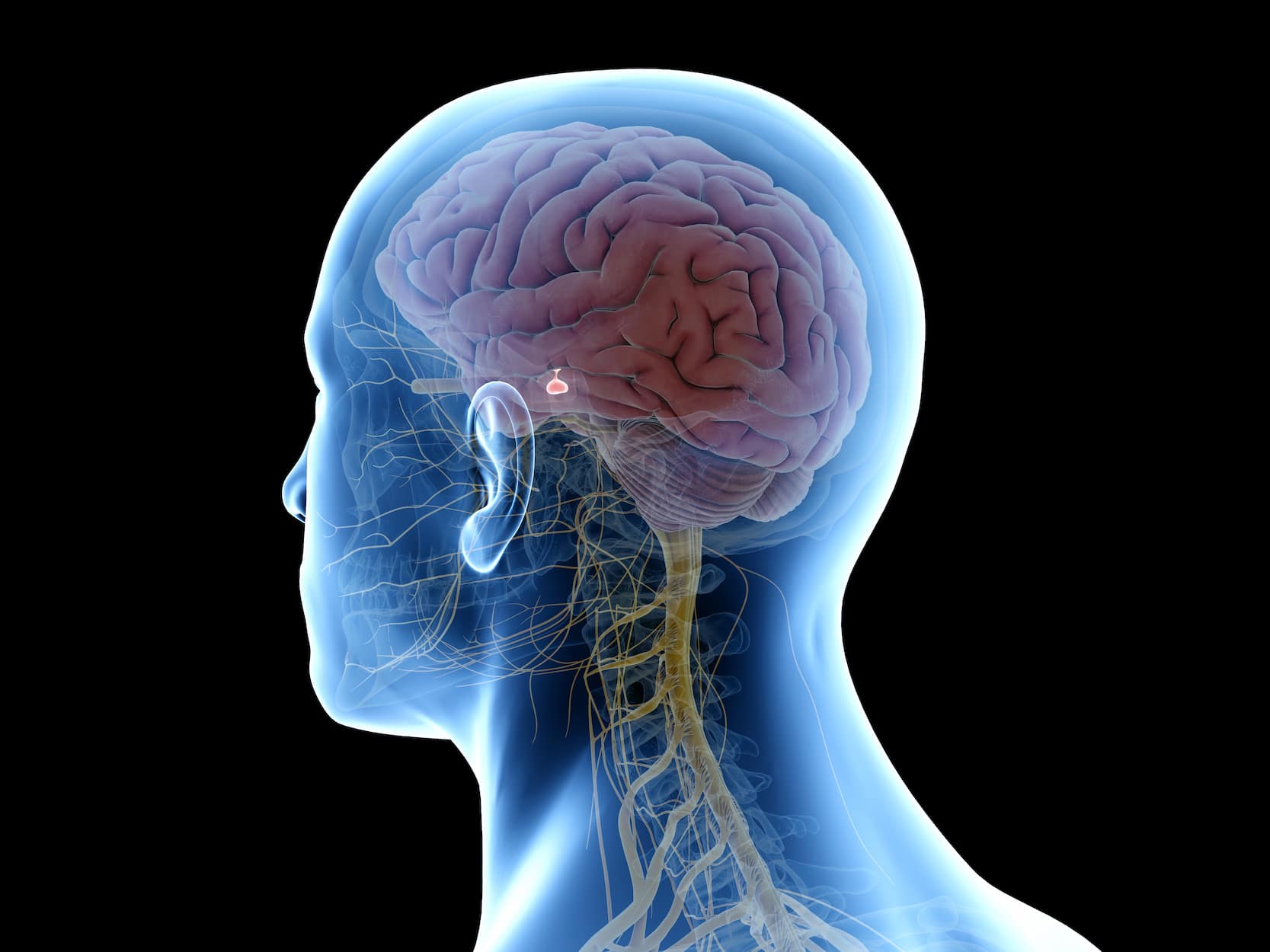Hypopituitarism Treatment in Turkey
Healthy Türkiye helps you find the best hypopituitarism treatment in Turkey at affordable prices and adopts a 360-degree service approach in all areas of health through affiliated hospitals.
- Medical Treatment
- Endocrinology Treatment in Turkey
- Polycystic Ovary Syndrome Treatment in Turkey
- Hypertension Treatment in Turkey
- Hyperthyroidism Treatment in Turkey
- Thyroid Disease Treatment in Turkey
- Acromegaly Treatment in Turkey
- Gigantism Treatment in Turkey
- Hirsutism Treatment in Turkey
- Hypopituitarism Treatment in Turkey
- Pediatric Endocrinology Treatment in Turkey
- Hormonal Imbalance Treatment in Turkey
- Pituitary Tumor Treatment in Turkey
- Hypothyroidism Treatment in Turkey
- Pheochromocytoma Treatment in Turkey
- Homepage
- Medical Treatment
- Hypopituitarism Treatment in Turkey

About Hypopituitarism Treatment in Turkey
In Turkey, hypopituitarism treatment is successfully performed by specialist doctors with various methods and techniques. Hypopituitarism is a rare condition in which there’s a deficiency of one, multiple, or all of the hormones made by your pituitary gland. Hormones are chemicals that coordinate different functions in your body by carrying messages through your blood to your organs, muscles, and other tissues, and these messages tell your body what to do and when to do it.
Hypopituitarism may occur from disorders of or damage to your pituitary gland or hypothalamus. The pituitary hormones which are part of your endocrine system in charge of important functions in your body, such as metabolism, growth and development, and reproduction. Your pituitary gland is a pea-sized gland located at the base of your brain below your hypothalamus.
Your pituitary gland is connected to your hypothalamus through a stalk of blood vessels and nerves, this is called the pituitary stalk. Through the stalk, your hypothalamus communicates with your pituitary gland and tells it to release certain hormones, your hypothalamus is part of your brain that controls functions like blood pressure, heart rate, body temperature, and digestion.
At Healthy Türkiye in Turkey, we have one of the world’s largest and most comprehensive experiences in diagnosing and treating patients with hypopituitarism. Our team of pituitary endocrinologists and neurosurgeons work in close collaboration to preserve or restore the pituitary gland and life due to pituitary adenoma, brain tumor, hypophysitis, pituitary surgery, radiation therapy or traumatic brain diseases.

Hypopituitarism Treatment Procedure in Turkey
Hypopituitarism is a disorder in which your pituitary gland fails to produce one or more hormones, or doesn’t produce enough hormones. The pituitary gland is a kidney-bean-sized gland situated at the base of the brain, it is part of your body’s endocrine system, which consists of all the glands that produce and regulate hormones. Despite its small size, the pituitary gland releases a number of hormones that act on nearly every part of your body.
Hypopituitarism is when you have a short supply of one or more of the pituitary hormones. These hormone deficiencies may affect any number of your body’s routine functions, such as growth, blood pressure, or reproduction. Signs typically vary, based on which hormone or hormones you are missing.
According to research, the prevalence of hypopituitarism is 45 cases per 100,000 people and the incidence rate is about 4 cases per 100,000 people, per year. Nearly 50 percent of patients have 3-5 pituitary hormone deficits.
Hypopituitarism Causes and Risk Factors
A number of factors can cause hypopituitarism. These include diseases of the pituitary gland or diseases of the hypothalamus that cause diminished secretion of hypothalamic-releasing hormones. These hypothalamus disorders reduce the secretion of corresponding pituitary hormones.
Certain tumors may also affect pituitary gland function; this includes brain tumors, pituitary gland tumors, and hypothalamus tumors. As a tumor gets bigger, it can compress and damage pituitary tissue, thereby interfering with the hormone production process.
The most common cause of hypopituitarism is a pituitary tumor. A pituitary tumor is almost always benign, however, it puts pressure on the rest of the pituitary gland. Also, it limits or even destroys the pituitary gland’s ability to produce hormones appropriately.
Diseases caused by inflammation, impaired immune function, or abnormal growth of tissue may cause the pituitary gland not to work properly. This includes infections of the brain, like meningitis, infections such as tuberculosis, syphilis, and mycoses, and the following inflammatory diseases:
Sarcoidosis is a disease involving an abnormal collection of inflammatory cells that form lumps known as granulomas.
Langerhans cell histiocytosis is abnormal cells that cause scarring in numerous parts of the body.
Hemochromatosis is a disease in which too much iron builds up in the body.
Other health issues that may lead to hypopituitarism include a severe loss of blood during childbirth, which may cause damage to the front part of the pituitary gland (this is known as Sheehan’s syndrome or postpartum pituitary necrosis), genetic mutations resulting in impaired pituitary hormone production, radiation damage and diseases of the hypothalamus.
Sheehan’s syndrome is a condition that affects women who lose a life-threatening amount of blood in childbirth and don’t have enough oxygen after childbirth. It is one of the most common causes of hypopituitarism.

We Care About Your Health
Healthy Türkiye provides the best for your health and comfort. You will feel privileged with us.
7/24 Quality Personal Assistance Throughout Your Journey
Customizable for You All-Inclusive Packages
Get the Right Advice for your Health
Types Of Hormones That the Pituitary Gland Produces
The pituitary gland creates and secretes 8 different types of hormones. They are as follows:
Adrenocorticotropic hormone (ACTH or corticotropin): ACTH hormones signal the adrenal glands to produce cortisol, usually known as stress hormones, that helps maintain blood pressure and blood glucose levels.
Antidiuretic hormone (ADH or vasopressin): These hormones help control the body’s water balance and sodium levels.
Follicle-stimulating hormone (FSH): This is responsible for stimulating sperm production in men, it also signals the ovaries to produce estrogen and egg development in women.
Growth hormone (GH): This hormone, in children, growth hormone facilitates growth, whereas, in adults, the hormone helps in maintaining muscles and bones and impacts fat distribution.
Luteinizing hormone (LH): LH provides stimulation of ovulation in women and testosterone in men.
Oxytocin: The hormone helps women in labor to progress during childbirth and allows breast milk to flow. Besides, it is responsible for developing bonding between the parent and the child.
Prolactin: These hormones affect the stimulation of breast milk production after childbirth in women.
Thyroid-stimulating hormone (TSH) can signal the thyroid to create hormones to manage metabolism and energy.
The progressive loss of pituitary hormone secretion is generally a slow process. It can develop over a period of months or years. However, occasionally hypopituitarism does start suddenly with a rapid onset of symptoms.

Types of Hypopituitarism Treatment in Turkey
Once the cause of the disorder is identified, it needs to be addressed as far as possible, to reduce the symptoms of pituitary deficiency. In some cases, appropriate management of the cause will result in a full or partial recovery of the pituitary function, and further treatment can be unnecessary. However, most individuals will require some form of hormone replacement therapy in addition, and some patients can need surgical treatment.
Hormone Replacement Therapy (HRT) in Turkey
Most pituitary hormones can be replaced indirectly by administering the products of the effector glands that respond to the stimulus of hormone deficiency: hydrocortisone (cortisol) for adrenal insufficiency, levothyroxine for hypothyroidism, testosterone for male hypogonadism, and estradiol for female hypogonadism.
Growth hormone is available in synthetic form but needs to be administered by injection. The antidiuretic hormone can be replaced by desmopressin (DDAVP) tablets or nose spray. Usually, the lowest dose of the replacement medication is used to restore well-being and correct the deranged results, as excessive doses would cause side effects or complications. Those requiring hydrocortisone are often instructed to increase their dose in physically stressful events such as injury, hospitalization, and dental work as these are times when the normal supplementary dose can be inadequate, putting the patient at risk of adrenal crisis.
Difficult situations arise in deficiencies of the hypothalamus-pituitary-gonadal axis in patients who experience infertility; infertility in hypopituitarism can be treated with subcutaneous infusions of FSH, human chorionic gonadotropin (hCG), which mimics the action of LH, and occasionally GnRH.
Growth hormone replacement therapy seems to play an important role in the sensibilization of ovary responsivity, follicular growth, and uterine morphology in those growth hormone deficiency patients. However, in pregnant women, growth hormone replacement is not recommended.
It is unlikely that patients will ever return to normal pituitary function and will therefore be on lifelong hormone replacement, it is therefore important that they will be followed up by an endocrinologist.
Surgery for Hypopituitarism Treatment in Turkey
If the cause of hypopituitarism is the tumor, it can be removed by:
Transsphenoidal Surgery: Transsphenoidal surgery is the removal of the tumor by an operation through the nose and the sphenoidal sinuses. It can, apart from addressing symptoms related to the tumor, also improve pituitary function, although the gland is sometimes damaged further as a result of the surgery.
Craniotomy: Craniotomy is a procedure for opening the skull, sometimes this is the only suitable way to approach the tumor.
After surgery, it may take some time for hormone levels to change significantly, retesting the pituitary hormone levels is therefore performed 2 to 3 months later.
Monitoring and Follow-Up for Hypopituitarism Treatment in Turkey
It is important that patients being treated for hypopituitarism receive adequate follow-up care and care support. As hormone replacement therapy is given on a lifelong basis, frequent monitoring is important to monitor the hormone replacement and to ensure that the patient is receiving the right dosage. Both under-replacement and over-replacement of hormones can result in symptoms. This should be avoided by having one’s blood tested regularly, also adjusting the hormone dose accordingly.
Types of Hypopituitarism
Based on the number of hormones missing, there are 3 kinds of hypopituitarism. They are as follows:
Isolated pituitary deficiency: When one pituitary hormone is not synthesized as expected is known as an isolated pituitary deficiency.
Multiple pituitary hormone deficiencies: When 2 or more pituitary hormones fail to be produced, it is known as multiple pituitary hormone deficiencies.Panhypopituitarism: In this case, as the name suggests, all pituitary hormones fail to get secreted.
In addition to the above, 3 different kinds of hypopituitarism are based on the cause and the hormones affected. They are as follows: Primary hypopituitarism is due to damage to and disorder of the pituitary gland. Secondary hypopituitarism is a hypothalamus disorder or damage to the hypothalamus that causes secondary hypopituitarism. Idiopathic hypopituitarism, in this case, the cause is unknown.
Infertility and Hypopituitarism
Infertility in hypopituitarism patients can be caused by LH and FSH deficiency leading to sex hormone abnormalities and insufficient egg and sperm maturation. In men, a hormone replacement treatment for 1 year or more is needed to achieve a sperm count adequate to father a baby.
Unexplained infertility can be a result of growth hormone deficiency due to its role in the reproductive system. In men, it controls male sexual maturation and adult reproductive function, in women, it acts as a modulator of gonadotropins and follicular maturation. Thus, growth hormone deficiency may be tested as a possible cause of unexplained infertility.
Before pregnancy, the hormone levels should be restored to a normal level. Pregnancies resulting from fertility treatment of hypopituitarism can be associated with an increased risk of pregnancy complications such as abortion, anemia, pregnancy-induced hypertension, placental abruption, premature birth, and postpartum hemorrhage. In these patients, close monitoring is necessary as changes may need to be made to their medications. Besides, ultrasound measurement is needed for fetal growth assessment.

2026 Cost of Hypopituitarism Treatment in Turkey
All types of medical attention like hypopituitarism treatment are very affordable in Turkey. Many factors are also included in determining the cost of hypopituitarism treatment in Turkey. Your process with Healthy Türkiye will last from the time you decide to have a hypopituitarism treatment in Turkey until the time you are fully recovered even if you are back home. The exact hypopituitarism treatment procedure cost in Turkey depends on the type of operation involved.
The cost of hypopituitarism treatment in Turkey does not demonstrate many variations in 2026. Compared to costs in developed countries like the United States or the UK, hypopituitarism treatment costs in Turkey are relatively low. So, it’s no wonder patients from across the world visit Turkey for hypopituitarism treatment procedures. However, the price is not the only factor affecting choices. We suggest looking for hospitals that are safe and have hypopituitarism treatment reviews on Google. When people decide to seek medical help for hypopituitarism treatment, they will not only have had low-cost procedures in Turkey, but also the safest and best treatment.
At clinics or hospitals contracted with Healthy Türkiye, patients will receive the best hypopituitarism treatment from specialist doctors in Turkey at affordable rates. Healthy Türkiye teams provide medical attention, hypopituitarism treatment procedures and high-quality treatment to patients at a minimum cost. When you contact Healthy Türkiye assistants, you can get free information about the cost of hypopituitarism treatment in Turkey and what this cost covers.
The cost of hypopituitarism treatment in the UK is between £8,000 to £25,000.
The cost of hypopituitarism treatment in the USA is between $20,000 to $50,000
The cost of hypopituitarism treatment in Turkey is between $2,000 to $10,000.
Price of Hypopituitarism Treatment in the UK?
Price of Hypopituitarism Treatment in the USA?
Price of Hypopituitarism Treatment in Turkey?
Why Choose Turkey for Hypopituitarism Treatment?
Turkey is a common choice among international patients seeking advanced hypopituitarism treatment. Turkey’s health procedures are safe and effective operations with a high success rate like hypopituitarism treatment. The increasing demand for high-quality hypopituitarism treatment at affordable prices has made Turkey a popular medical travel destination. In Turkey, hypopituitarism treatment is performed by highly experienced and trained doctors with the most advanced technology in the world. Hypopituitarism treatment is done in Istanbul, Ankara, Antalya, and other major cities. The reasons for choosing hypopituitarism treatment in Turkey are as follows:
High-quality hospitals: Joint Commission International (JCI) accredited hospitals have dedicated hypopituitarism treatment units that are specially designed for patients. International and national strict protocols provide effective and successful hypopituitarism treatment for patients in Turkey.
Qualified experts: The expert teams include nurses and specialist doctors, together to carry out hypopituitarism treatment according to the patient’s needs. All the included doctors are highly experienced in performing hypopituitarism treatment.
Affordable price: The cost of hypopituitarism treatment in Turkey is affordable compared to Europe, the USA, the UK, Singapore, Australia, etc.
The high success rate: Highly experienced specialists, the best available technology, and stringently followed safety guidelines for post-operative care of the patient, resulting in a high success rate for hypopituitarism treatment in Turkey.
Is Hypopituitarism Treatment Safe in Turkey?
Did you know Turkey is one of the most visited destinations for hypopituitarism treatment in the world? It is ranked one of the most visited tourist destinations for hypopituitarism treatment. Over the years it has also come to be a very popular medical tourism destination too with many tourists coming in for hypopituitarism treatment. There are so many reasons why Turkey stands out as a leading destination for hypopituitarism treatment. Because Turkey is both safe and easy to travel to with a regional airport hub and flight connections to pretty much everywhere, it is preferred for hypopituitarism treatment.
The best hospitals in Turkey have experienced medical staff and specialists who have performed thousands of medical services such as hypopituitarism treatment. The Ministry of Health controls all procedures and coordination related to hypopituitarism treatment in accordance with the law. Over many years, the greatest progress in medicine has been observed in the field of hypopituitarism treatment. Turkey is known among foreign patients for its great opportunities in the area of hypopituitarism treatment.
To emphasize, besides the price itself, the key factor in selecting a destination for hypopituitarism treatment is certainly the standard of medical services, the hospital staff’s high expertise, hospitality, and the safety of the country.
All-Inclusive Package for Hypopituitarism Treatment in Turkey
Healthy Türkiye offers all-inclusive packages for hypopituitarism treatment in Turkey at much lower prices. Extremely professional and experienced doctors and technicians carry out high-quality hypopituitarism treatment. The cost of hypopituitarism treatment in European countries can be quite expensive, especially in the UK. Healthy Türkiye provides cheap all-inclusive packages for a long and short stay of hypopituitarism treatment in Turkey. Because of many factors, we can provide you with many opportunities for your hypopituitarism treatment in Turkey.
The price of hypopituitarism treatment differs from other countries due to medical fees, staff labor prices, exchange rates, and market competition. You can save much more in hypopituitarism treatment compared to other countries in Turkey. When you purchase the hypopituitarism treatment all-inclusive package with Healthy Türkiye our healthcare team will present hotels for you to choose from. In hypopituitarism treatment travel, you will have the price of your stay included in the all-inclusive package cost.
In Turkey, when you purchase hypopituitarism treatment all-inclusive packages through Healthy Türkiye, you will always receive VIP transfers. These are provided by Healthy Türkiye, which is contracted with highly qualified hospitals for hypopituitarism treatment in Turkey. Healthy Türkiye teams will organize everything about hypopituitarism treatment for you and have you picked up from the airport and safely brought to your accommodation.
Once settled in the hotel, you will be transferred to and from the clinic or hospital for hypopituitarism treatment. After your hypopituitarism treatment has been successfully completed, the transfer team will return you to the airport in time for your flight home. In Turkey, all packages of hypopituitarism treatment can be arranged upon request, which relaxes the minds of our patients. You can reach out to Healthy Türkiye for everything you need to know about hypopituitarism treatment in Turkey.
The Best Hospitals in Turkey for Hypopituitarism Treatment
The best hospitals in Turkey for hypopituitarism treatment are Healthy Türkiye Healthy Türkiye, Memorial Hospital, Acıbadem International Hospital, and Medicalpark Hospital. These hospitals attract patients from all over the world seeking hypopituitarism treatment due to their affordable prices and high success rates.
Best Doctors and Surgeons in Turkey for Hypopituitarism Treatment
The best doctors and surgeons in Turkey for hypopituitarism treatment are highly skilled professionals who offer specialized care and advanced procedures. With their expertise and state-of-the-art techniques, these specialists ensure that patients receive high-quality hypopituitarism treatment and achieve optimal health results.

Frequently Asked Questions
It is important that the condition is diagnosed and treated as soon as possible because untreated hypopituitarism has the potential to lead to permanent disability or death.
Important nutrients for good pituitary are a variety of minerals especially manganese, magnesium, and vitamin E. Foods rich in minerals are wheat, leafy greens, nuts, and some legumes and other important nutrients are iron and iodine.
It requires lifelong treatment with one or more medicines, but you can expect a normal life span.
Hypopituitarism in patients with effective treatment of CD can be associated with mildly impaired executive functioning.
Polyphenols, omega-3, and vitamins C, B1, and B12
Patients with hypopituitarism are at a higher risk of incident depression and anxiety disorders than those without hypopituitarism.
Hypopituitarism is a rarely diagnosed brain disease that can cause fatigue.
Hypopituitarism is not currently considered a potential cause of immune disruption in humans. Accumulating data from in vitro and animal models support the role of the pituitary gland in immune regulation.
In most cases, you can’t prevent this disorder.
Successful pregnancy in hypopituitarism patients is rare because hypopituitarism is associated with an increased risk of pregnancy complications, like abortion, anemia, pregnancy-induced hypertension, placental abruption, premature birth, and postpartum hemorrhage.
Hypopituitarism can be due to abnormal gland development as a result of genetic defects, which result from mutations in the gene coding for transcription factors that regulate pituitary development.
Insufficient ACTH hormone secretion results in cortisol deficiency; thus, hypopituitarism may cause hypoglycemic events in diabetic patients on medical treatment including insulin therapy.
